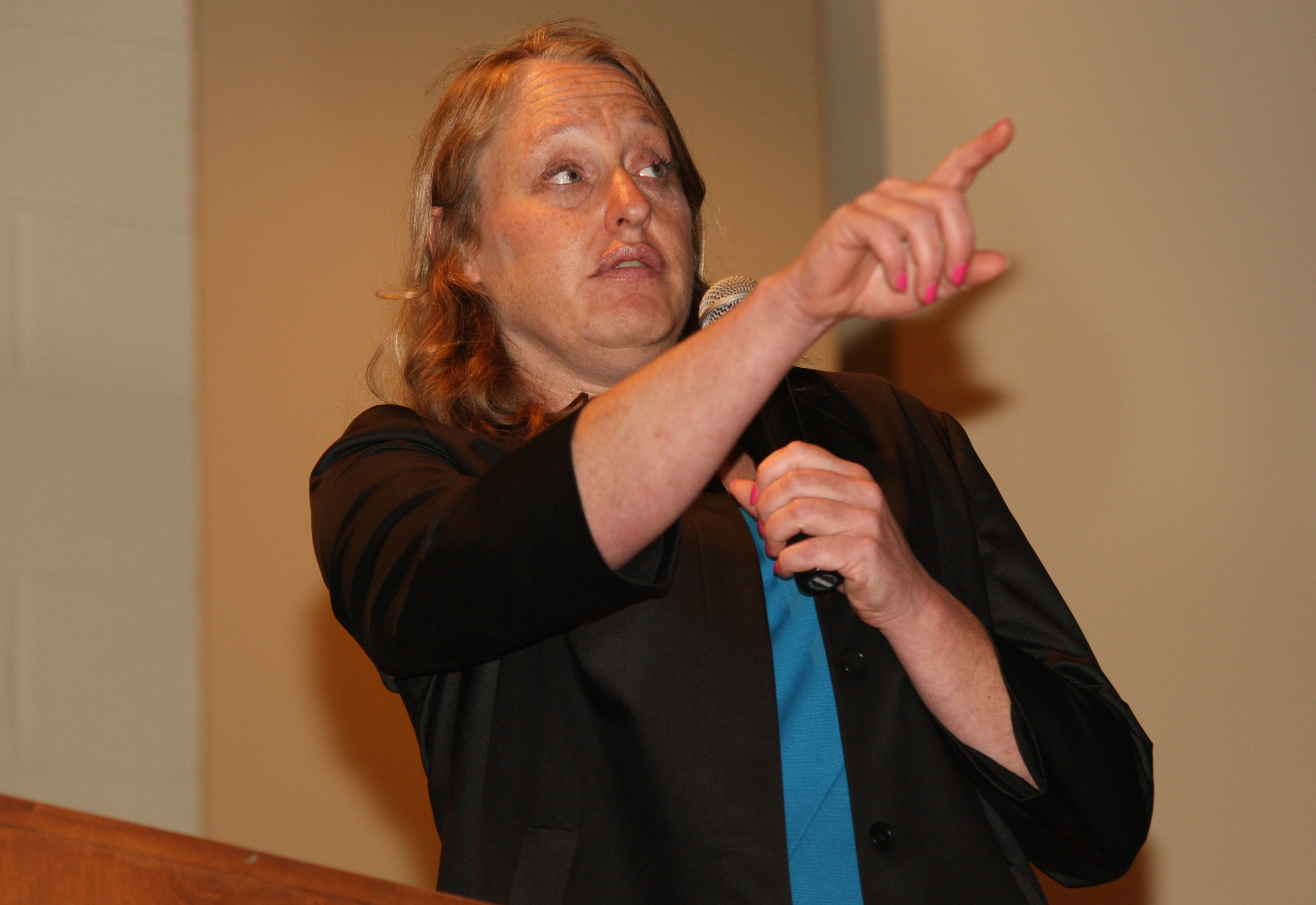Nail bombs coated in rat poison.
White supremacists plotting to kill black children and assassinate President Barack Obama.
A shooting rampage at a Sikh temple in Wisconsin by a lifelong neo-Nazi who lost his job and girlfriend.
These were a handful of the anecdotes that Heidi Beirich shared with a crowd of 150 in UTC's auditorium Wednesday night.
Then there were the numbers.
Her organization, the Southern Poverty Law Center, last year tracked more than 1,000 active hate groups operating in the United States -- the most Beirich has seen since she joined the center in 1999.
That's up 69 percent from the 602 counted a decade ago, she said.
There are between 5,000 and 8,000 active Ku Klux Klan members in the nation, she said.
Much of the rise in hate group numbers and membership can be traced to immigration and the changing nature of U.S. demographics, she said.
Many groups targeted blacks for much of their history, but an influx of Hispanic people refocused the hate.
Yet with one backlash comes another.
Anti-immigration legislation in California and Arizona in the 1990s and early 2000s later led to defeat for politicians backing those causes, especially as more Hispanics and their supporters came out to vote.
Here in Tennessee, the law center tracked 33 hate groups last year. The groups ranged from Nazi to Klan to anti-Muslim to anti-gay.
Anti-government group numbers also have skyrocketed from 149 the year Obama was elected to 1,360 now, she said.
Militias spurred by the election of President Bill Clinton in the 1990s had faded, Beirich said. Tough investigations and prosecutions by the FBI and other law enforcement tamped the numbers down in that decade.
But those groups have more than doubled since Obama was elected. The number of active militias went from 127 in 2008 to 361 last year, she said.
Three black UTC students in the audience said they were shocked to hear of the numbers and incidents Berich described.
Martavia Wilson, Ryleigh Amos and Bieoncia Smith said they'd never encountered racist attitudes nor had been the target of hate.
"I didn't know it was still like that," Wilson said.
But each of the women said Beirich's advice seemed good -- get educated and speak up when they see bigotry or racism.
Beirich encouraged the group, saying that polls and studies show the younger generation is much more tolerant about race and gender issues such as interracial couples and gay marriage.
A young woman asked from the audience if there was hope for today's youth to spur change.
"I actually think that over time, that's what's going to happen," Beirich said. "I'm hoping we have a bright future and you guys are going to help us get there. So get to work."

